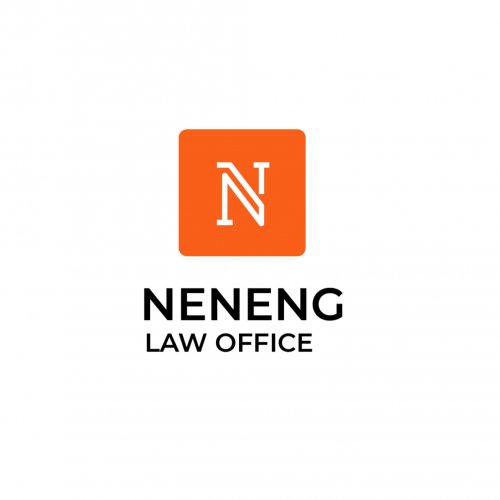Best Collaborative Law Lawyers in Douala
Share your needs with us, get contacted by law firms.
Free. Takes 2 min.
Free Guide to Hiring a Family Lawyer
List of the best lawyers in Douala, Cameroon
About Collaborative Law in Douala, Cameroon
Collaborative law is a legal approach that emphasizes cooperation, negotiation, and mediation instead of adversarial tactics and litigation. In Douala, the economic capital of Cameroon, this practice is increasingly adopted in settling disputes, especially in family law matters such as divorce, child custody, and asset division. It is also utilized in commercial disputes where preserving relationships is key.
Why You May Need a Lawyer
Even though collaborative law is a less confrontational approach, it may still require complex legal procedures and negotiations. Having a lawyer ensures that your interests are effectively represented. It is particularly helpful in complex negotiations, where expert guidance is needed. In cases such as divorce, child custody, property division, and commercial disputes, a lawyer can help you reach a fair and mutually beneficial agreement.
Local Laws Overview
In Douala, the principle of collaborative law is largely guided by the OHADA Uniform Act on Arbitration, the OHADA Uniform Act on Mediation, and the Cameroonian Code of Civil Procedure. Understanding these laws can be difficult without legal education, making the guidance of a lawyer essential in most cases.
Frequently Asked Questions
1. What if negotiations fail?
If negotiations in the collaborative law process fail, the involved parties may decide to resort to traditional litigation. In such cases, the lawyers involved in the collaborative process will withdraw from the case and the parties will have to hire new lawyers to represent them in court.
2. Is collaborative law cheaper than traditional litigation?
While it can depend on the specific circumstances, collaborative law is generally considered less expensive since it eliminates the costs of court proceedings and hastens resolution through cooperation and mutual agreement. However, the overall cost can be influenced by the complexity of the issue and the duration of negotiations.
3. Can any lawyer practice collaborative law?
While any licensed lawyer can theoretically engage in collaborative law, those who specialize in the field tend to have specific training and experience in mediation and negotiation, which can lead to better outcomes. If you are considering collaborative law, you should seek a lawyer experienced in this practice.
4. How long does the process take?
The duration of collaborative law depends on the complexity of the issue and the willingness of the parties to reach an agreement. It could take only a few sessions, or it could extend over several months. The process is generally faster than traditional litigation.
5. Is the collaborative law process confidential?
Yes, the collaborative law process is confidential. The details discussed in meetings are not disclosed to any outside parties, maintaining the privacy of those involved.
Additional Resources
The Bar Association of Cameroon and the Douala Bar Association offer referral services and can provide assistance in finding a lawyer who specializes in collaborative law. Additionally, the African Center for Law and Development provides resources and education about collaborative law in Africa.
Next Steps
If you're considering seeking legal advice in collaborative law, start by identifying established law firms in Douala that specialize in this field. Prepare a summary of your case, and collect all related documents. When you contact a law firm, be prepared to describe your situation and ask how they could help.
Lawzana helps you find the best lawyers and law firms in Douala through a curated and pre-screened list of qualified legal professionals. Our platform offers rankings and detailed profiles of attorneys and law firms, allowing you to compare based on practice areas, including Collaborative Law, experience, and client feedback.
Each profile includes a description of the firm's areas of practice, client reviews, team members and partners, year of establishment, spoken languages, office locations, contact information, social media presence, and any published articles or resources. Most firms on our platform speak English and are experienced in both local and international legal matters.
Get a quote from top-rated law firms in Douala, Cameroon — quickly, securely, and without unnecessary hassle.
Disclaimer:
The information provided on this page is for general informational purposes only and does not constitute legal advice. While we strive to ensure the accuracy and relevance of the content, legal information may change over time, and interpretations of the law can vary. You should always consult with a qualified legal professional for advice specific to your situation.
We disclaim all liability for actions taken or not taken based on the content of this page. If you believe any information is incorrect or outdated, please contact us, and we will review and update it where appropriate.









